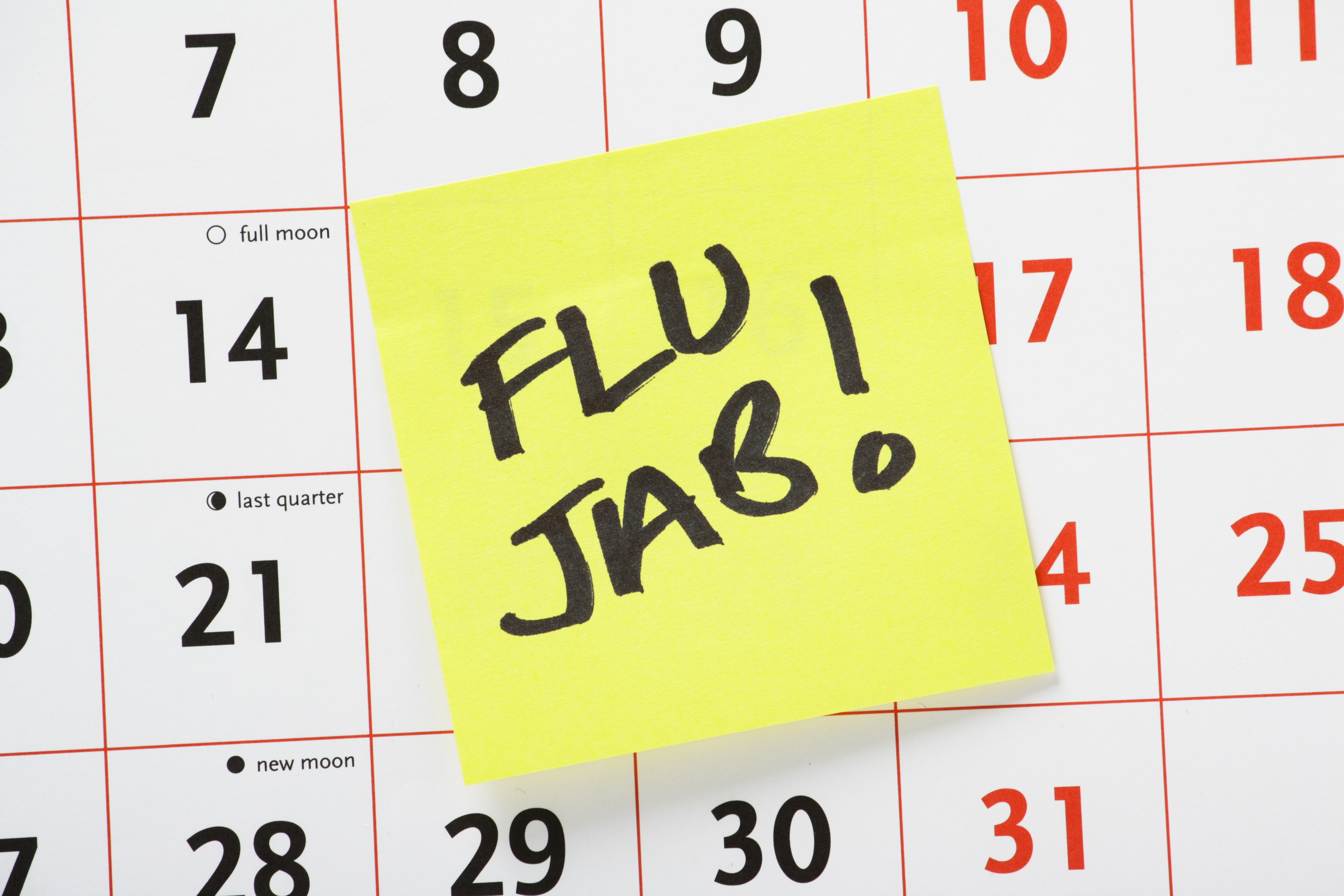Coronavirus
If you have a new or ongoing cough, a high temperature (fever) or you've noticed a change in your sense of smell or taste, you may have coronavirus (COVID-19). Read more about coronavirus or use our Coronavirus Risk Assessment to check your risk.
The flu is a virus which affects your respiratory system - including your nose, throat, and lungs.
Flu, also known as influenza, is more common between the months of December and March, but unlike the common cold, flu symptoms tend to come on suddenly.
Symptoms can range from mild to severe, and will usually last for around five days, although they can last for over a week.
Some people are at an increased risk of developing complications from the flu, such as:
- People with a pre-existing health condition
- People aged 65 years or over
- Pregnant women
- People with weakened immune systems
If you fall into any of the above categories it’s important to take steps to prevent the flu, which can include getting the flu vaccine.
You should also see your doctor if you develop symptoms of the flu.
Flu symptoms
Symptoms of the flu will vary from person to person, and they can range from mild to severe. Symptoms include:
- A sudden fever – a temperature of 38C or above
- Muscle aches and pains
- Feeling tired
- A dry cough
- A sore throat
- Headaches
- Difficulty sleeping
- Loss of appetite
- Diarrhoea or stomach pain
- Nausea and being sick
To manage a fever, you should drink plenty of water to help avoid dehydration.
Usually a doctor may advise taking painkillers, such as paracetamol, to help lower your temperature or ease any aches and pains. Speak to a pharmacist or doctor for further guidance before taking any painkillers.

If you’re in an at-risk group, your doctor may prescribe antivirals to reduce the risk of complications.
Flu vs cold
A cold and the flu do have some symptoms in common, such as a runny nose, sneezing, a sore throat, and a cough.
Unlike a cold, however, the flu tends to cause a sudden fever (a temperature above 38C), aching muscles, sweating, and a dry and chesty cough. People with the flu may feel so exhausted that they are unable to carry on as normal.
People with a cold typically feel unwell but remain able to go about their daily lives and work. The symptoms of a cold come on more gradually, and the main symptoms include a runny or blocked nose, and sore throat.
Some people are more at risk of developing chest complications following the flu, such as those who:
- Have a serious heart or chest condition, including asthma
- Have a kidney disease or liver disease
- Have diabetes
- Have a weakened immune system
- Have suffered a stroke or transient ischaemic attack (TIA)
- Are over the age of 65
Anyone deemed more at risk should consider getting a flu jab.
How to prevent flu
If you already have the flu, you can prevent it from spreading by using tissues to catch your cough or sneeze. You should then dispose of any tissues straightaway.
You should also wash your hands regularly to stop germs being transferred to any surface you touch. Avoid touching your nose and eyes.
To prevent catching the flu, you should consider getting the flu jab. It is most effective to get the jab before the start of the flu season, but you can also get it during flu season.

While some people think that vitamin C can prevent or cure the flu, there is little evidence to support this.
Read more
For more information on myths about curing or preventing the flu, visit our Health A-Z
The symptoms of flu can feel severe, but there are things you can do to help you feel better. This includes getting plenty of rest, staying hydrated and eating well.
You could also speak to a pharmacist or doctor about taking any painkillers if needed.
When to worry
You should visit a doctor if you have any of the following:
- A chronic condition – such as asthma, diabetes or heart disease
- A very high temperature and feel ill
- A bad headache
- Abdominal pain
- A weakened immune system – for example, because of chemotherapy or HIV
You should see a doctor if any of the following applies:
- Your symptoms don't improve after seven days
- You're worried about your baby's or child's symptoms
- You're 65 or over
- You're pregnant
You should seek immediate medical attention if you:
- Develop sudden chest pain
- Have difficulty breathing
- Start coughing up blood
Conclusion
The flu can leave you feeling exhausted. Most people start to feel better after five days, but symptoms can linger for over a week.
Some people may also develop conditions like pneumonia and bronchitis as a result of having the flu, especially if they have a pre-existing condition or are in an at-risk group.
To prevent spreading and catching the flu, make sure you regularly wash your hands, and use tissues to catch your sneezes and coughs.
The flu jab can help prevent you from catching the flu, which is important if you are at risk of developing complications.

